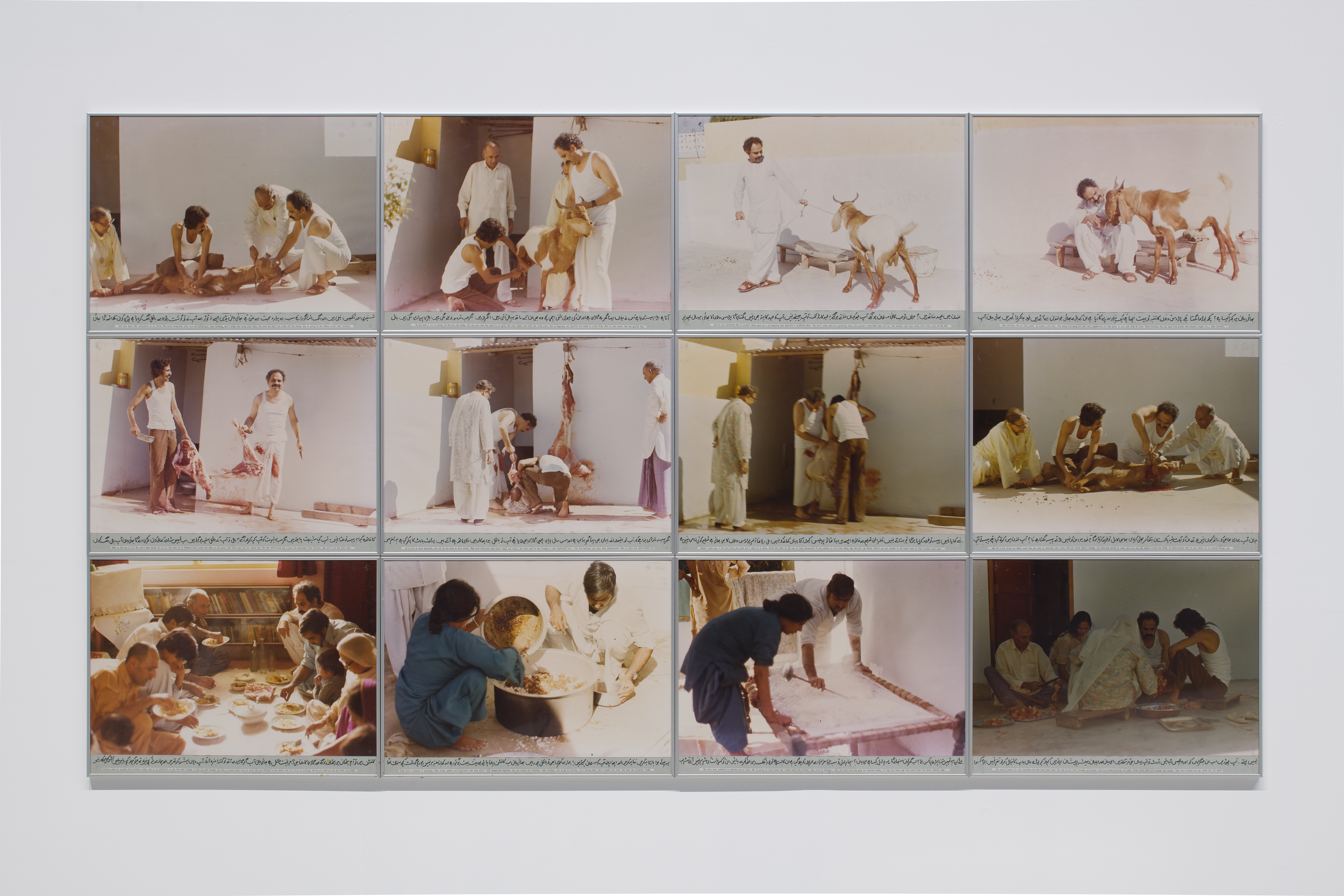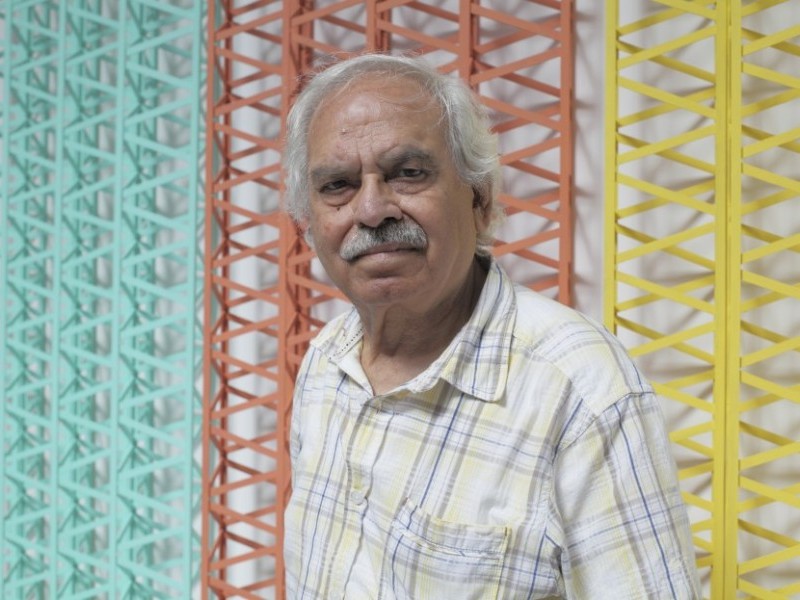

Overview
Known for his formal geometric sculptures made from simple materials, Rasheed Araeen is widely considered to be an early pioneer of minimalism. A trained civil engineer, he often employs industrial materials, eschewing traditional sculptural hierarchies and rules of composition in favour of his own personal social and political ideologies.
In his artwork For Oluwale (1971–1973/1975), Araeen decided to make a work dedicated to David Oluwale, a British-Nigerian who drowned in the River Aire in 1969 after facing systematic harassment by members of the Leeds City Police force. This artwork marked a politicised shift in the practice of Araeen who was previously creating predominantly abstract works. This work was shown over four weeks; one panel was unveiled each week.In the first week, information about Oluwale’s death was presented on a 4 x 4 feet panel. In the second week, two pages from the Black Panther newspaper were added to the panel, depicting the violence of racism against black people. In the third week, information about Fascist dictator Antonio Salazar’s state visit to London was displayed. In the fourth week, the last panel was added, showing what was going around the exhibition. Araeen explored a different set of aesthetic goals by shifting from a three dimensional artwork to the almost-flat artwork.
I Love It, It Loves I (1978–1983) consists of 12 framed colour photographs with Urdu and English text. The images show a younger Araeen and his family slaughtering an animal in accordance with the ritual prescribed by Islam on the occasion of Eid-al-Adha. The photographs were taken in 1978 in Karachi and then layered with text and titled in 1983. The artwork relates to treading the fine line between mundane everyday lived life and performative art practice, blurring the distinctions between the real and representational with the aid of a camera and the value of the residue for a work of performance art.
Related Content

When I Count, There Are Only You…
Taking its title from a work by Farideh Lashai that was itself inspired by Goya’s Disasters of War, this exhibition offers an insight into the radical ideas, visions and perspectives on humanity that inform the work of eight artists represented in the Sharjah Art Foundation Collection.
Book your ticket to this exhibition here.

Araeen, Rasheed
Known for his formal geometric sculptures made from simple materials, Rasheed Araeen is widely considered to be an early pioneer of minimalism.
